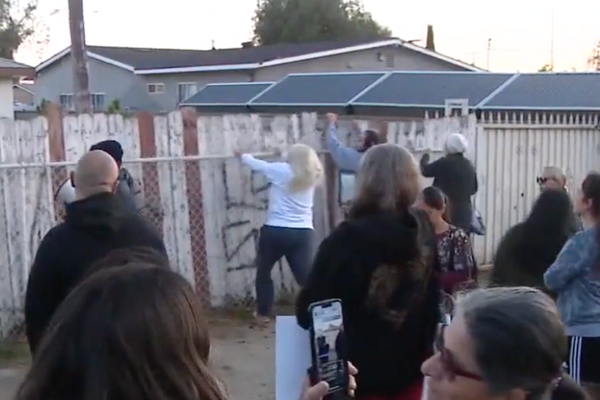
The Queensland police commissioner sought to access the confidential domestic and family violence records of a female officer – who was allegedly the victim of “significant” acts of violence by her husband – in order to investigate her.
The state’s chief magistrate denied police access to those documents this week, ruling that victims of violence might be deterred from seeking help if they feared doing so might trigger “reprisal applications” or disciplinary action.
The judgment outlines a case where the female officer made “alarming and concerning” allegations against her husband, including that he went through her phone, controlled her finances and threw her off a bed.
“[He] threatened to take out a domestic violence order against me to end my police career,” the woman stated in court documents.
“This threat was ongoing for many years.”
After the female officer sought a protection order against her husband, the man lodged a cross-application against her, which did “not identify” any alleged acts of violence perpetrated by the woman.
After learning about the cross-application, the Queensland police service then instigated disciplinary proceedings against the female officer.
The commissioner applied for the documents – otherwise covered by confidentiality provisions – from the court because the service “wishes to investigate allegations of her having committed acts of domestic violence”.
The Queensland chief magistrate, Janelle Brassington, refused the application and said that to release the information would significantly undermine the protections of the Domestic and Family Violence Act.
“To authorise access to the proceedings means that [the female officer’s] reasonable expectation to confidentiality in a domestic violence proceeding will be set aside.
“Having read her submissions in the application there is a real possibility that such a disclosure would cause her significant distress that could not be ameliorated by any order that I could make.
“She is opposed to release even if it means the investigation will not have a true picture of the severity of the domestic violence she has stated she experienced,” Brassington said.
“Further … I am satisfied granting this application may deter others in a similar position from bringing domestic violence applications thus endangering their safety and perhaps the safety of their children.
“It would be a most unfortunate outcome that accessing a protective scheme that has as its paramount purpose the object of maximising the safety, protection and wellbeing of people who fear or experience domestic violence, and to minimise disruption to their lives, could trigger disciplinary proceedings against a person seeking protection and that the person who is alleged to be the abuser is the person whose allegations are used as the basis of that investigation.
“That result would not only impact [the female officer] but in my view would have a significant impact on many who may consider seeking protection from domestic violence.”
The judgment says the commissioner had argued that an investigation was necessary because police had been “criticised for its handling of domestic violence matters, particularly in relation to the police officers who commit domestic and family violence”. His submissions cited criticism from the 2022 findings of a landmark commission of inquiry.
The same inquiry heard evidence that police officers frequently failed to recognise who was the person “most in need of protection” when responding to family violence matters. Research shows that almost half the women murdered in Queensland had previously been labelled the perpetrator of domestic violence by police.
Brassington made no finding in the case as to who was “most in need of protection” but noted the female officer had made serious allegations of violence against her husband. She also noted that another magistrate could not identify allegations of violence in the cross-application.
“It is unfortunately notorious that on many occasions those seeking the aid of the court to get protection from domestic violence face retaliatory action by the way of a domestic violence cross-application,” Brassington said in her judgment.
“Given the very real potential that victims of domestic violence may be deterred from seeking protection because of the fear of reprisal applications triggering similar investigatory action, I consider that the public interest in this case is best served by refusing the commissioner’s application.”
A spokesperson for the Queensland Police Service said the move to seek the confidential information was “standard procedure”.
“The Queensland Police Service (QPS) holds itself to the highest standards of integrity and accountability. As part of standard procedure, Ethical Standards Command, on behalf of the Commissioner of Police, sought to review relevant details to ensure proper processes were followed and professional standards were upheld,” they said.
“The QPS accepts the court’s decision in this instance.
“As this matter involves legal proceedings and privacy considerations, it would be inappropriate to make any further comment.”







